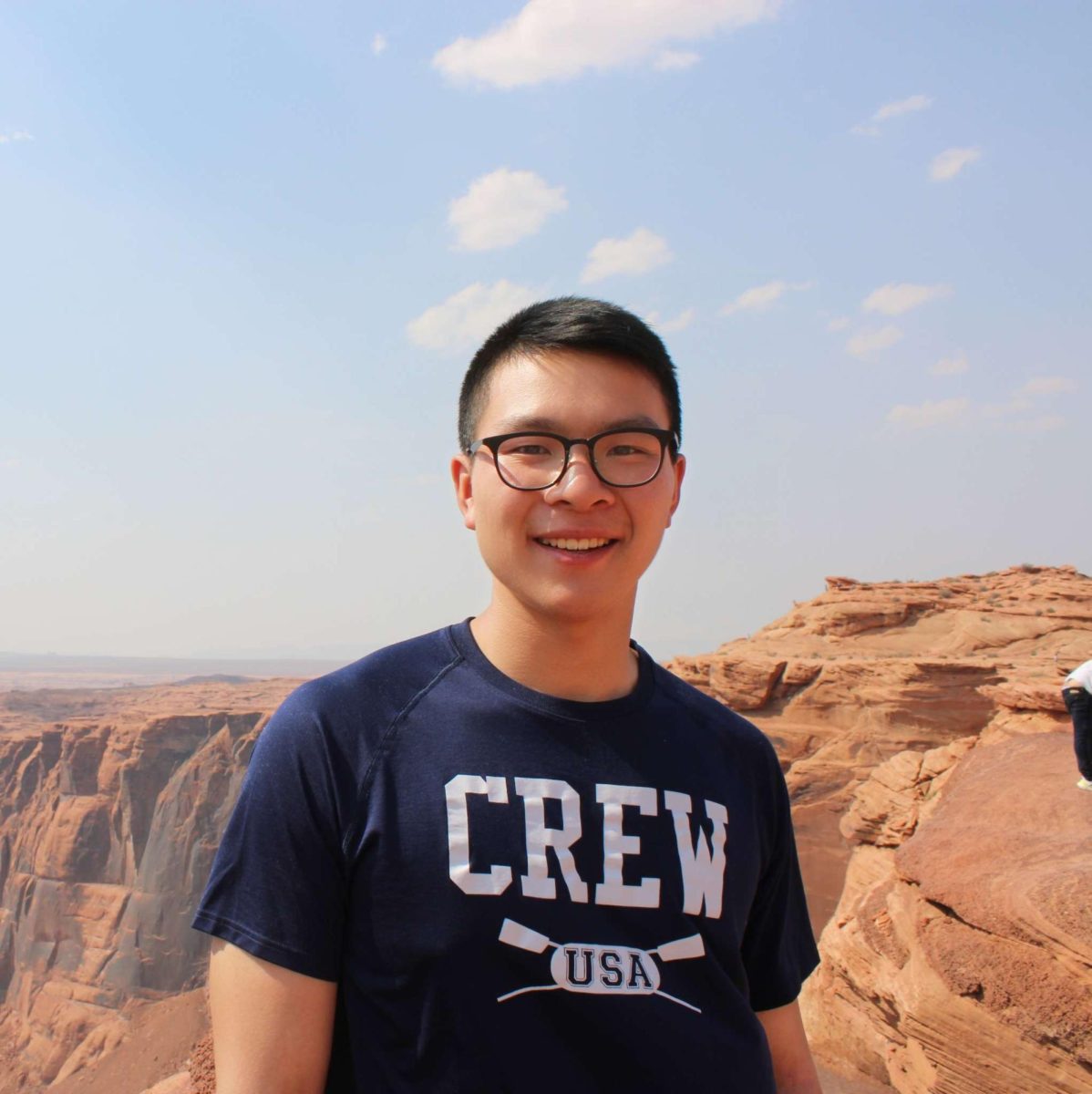The senior column is a conflict between a graduate’s learned vocabulary and a 750-word limit.
Each word is a bit or piece that fights to represent the total college experience. The columns ramble, rumble and feel less stable than rusty amusement park rides. They are collared shirts and ties that try to neatly clothe the riots in our minds.
The last issue is annually pumped full of tired phrases that are the hallmarks of Hallmark. We strum tired chords, playing to catharsis. We only call them columns because of tradition, but they are closer to personal essays. These are on the editorial pages, but the opinions expressed don’t have a sovereign section. The columns are our reactions to getting elbowed in the face by this: One round as an undergrad isn’t enough to experience all that we intended. None of these thoughts are newsworthy; these columns don’t really belong in newspapers.
So we say to hell with it. These are truer than news.
Because of these characteristics, a senior column is that last thing I want to write. I feel like a maniac, lying on a therapist’s couch, packaging my experience into simple parcels of false understanding through street-corner philosophy. I’m kidding myself. This column is the essence of every “FAIL” written on Facebook. I don’t want to be the guy who works for Merriam-Webster but does a shitty job of explaining all of that a word denotes.
I’m an editor-in-chief who has written two articles for his publication since he got the job. This former news junky and fanatical wordsmith went from publishing everyday to not at all. I wrote the entire news section three times. I charged from meeting to exhibition, opening to memorial service to protest to crime scene while shaping events into stories and giving the everyday mundane a bit of the glory it’s due. Then I cracked up.
After my father’s sudden death this semester, it felt hypocritical to report on anything. I simply did not want to ask people to assign meaning to the events of their lives while I couldn’t. This reluctance was one of those sudden blows that actually come from within. I chose a succession of personal revolutions that pulled me farther from having to interview people and having to boil events down to their most basic elements for easy and quick consumption. To read a news article requires a motivation that is sparked by curiosity. Writing one requires the same, and at an exponentially increased level. When you’re actively trying not to think and not to analyze events to extrapolate meaning, the reporter’s qualities – a passionate preference for order, a bias for motive and consequence over five-cent philosophies, among others – begin to abandon him.
But my favorite part about this newspaper is that it publishes daily and holds its reporters to questionable standards. For each of these reasons, my name is in the byline again. The best thing about a liberal arts curriculum at the University of Massachusetts is that above all else, it stresses awareness over knowledge. It’s why writing this column has both sucked and not sucked. People speak of the “college bubble” constantly – that it’s the ramble in your brain before you begin to actually make sense. It’s a wind-up, a musical prelude before something truly begins. That isn’t entirely true. Sure, we’ve been learning about our individual fortitudes through trials-by-ordeal that are meant to mimic or prepare us for the real world through its simulation by professors.
But through my reporting over four years here – and yes, through the crack up too – my default settings have been rocked because of a greater awareness that I can choose how to think about everything, instead of simply choosing whether to think about it or not. That’s the value of my education at UMass.
I didn’t study business or science, but literature and writing instead. This curriculum has an intense focus on the pursuit of Truth. The empty spaces with which the Collegian begins each night of production demand it every day, too. So I won’t be throwing my cap in the air with this buoyed expectation that “it all” begins at that moment and that before then, I wasn’t prepared.
The goals will be the same; the tests will continue to come from everywhere; and I figure that neither the beginning nor the end of working toward a goal of sanity has anything to do with graduating at all.
William McGuinness was the Collegian’s editor-in-chief. He can be reached at [email protected].







Boris Revsin • May 3, 2010 at 10:28 am
Well done my friend. What all the other readers don’t know is that this was supposed to be an essay on Sam Adams, but we couldn’t get our editor-in-chief in before everything got hazy.
Where will Will go now?
Bruce Wilkinson • May 3, 2010 at 9:31 am
Mr. Mcginness, you are a parking-lot crusader of truth